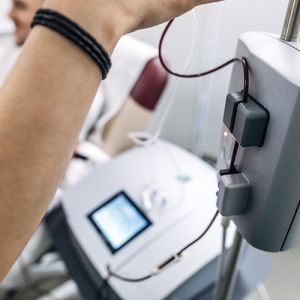Do I Suffer From Chronic Pain?
Do I Suffer From
Chronic Pain?
Understanding Chronic Pain Management
Pain affects almost everyone at some point in their lives. Pain is your body’s method of notifying you something is amiss when you cut your finger or tear a muscle. You stop aching once the injury heals.
Chronic pain is unique. Weeks, months, or even years after the injury, your body continues to pain. Chronic pain is defined by doctors as any pain that lasts for three to six months or more.
Chronic pain can have a significant impact on your daily life as well as your mental health. However, you and your doctor can treat it together.
treatment modalities to treat chronic health issues, including:
What Causes Chronic Pain in You?
Pain is caused by a succession of messages travelling through your nerve system. When you injure yourself, pain sensors in that location are activated. They transmit a message to your brain in the form of an electrical signal that goes from nerve to nerve. Your brain interprets the signal and delivers the message that you are in pain.
The signal usually stops when the source of the pain is resolved, such as when your body heals a finger wound or a torn muscle. However, nerve impulses in chronic pain continue to fire long after you’ve recovered.
-
Past injuries or surgeriesNerve damageInfectionsFibromyalgia is a condition in which people feel muscle pain throughout their bodies
Symptoms
The severity of chronic pain might vary greatly. It can last for days or it can come and go. The pain can be described as follows:
- A persistent aching
- Throbbing
- Burning
- Shooting
- Squeezing
- Stinging
- Soreness
- Stiffness
Pain is sometimes just one of numerous symptoms, which may include:
- Feeling exhausted or drained
- Not feeling hungry
- Sleeping problems
- Mood swings
- Weakness
- A lack of vitality
- Fatigue
Your Mental Health and Chronic Pain
Chronic pain can make it difficult to do the activities you want and need to do in your everyday life. It can lower your self-esteem and make you angry, depressed, anxious, or frustrated.
A cycle can be created by the link between your emotions and your pain. You’re more prone to be depressed when you’re in pain. This could aggravate your pain. Antidepressants are frequently used as one treatment for chronic pain due to the relationship between depression and pain. These medications can help with both physical and mental discomfort.
Pain disrupts sleep and increases stress. Pain can intensify as a result of a lack of sleep or increased stress.
Seek Treatment for Chronic Pain
Consult a doctor or a pain specialist if you are experiencing pain that does not seem to be improving. They can assist you in obtaining relief so that discomfort does not prevent you from living your life. Medicine, relaxation therapy, physical therapy, acupuncture, and lifestyle modifications such as getting adequate sleep and avoiding smoking are some of the choices.










